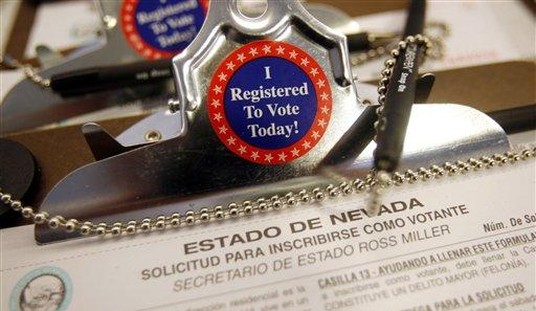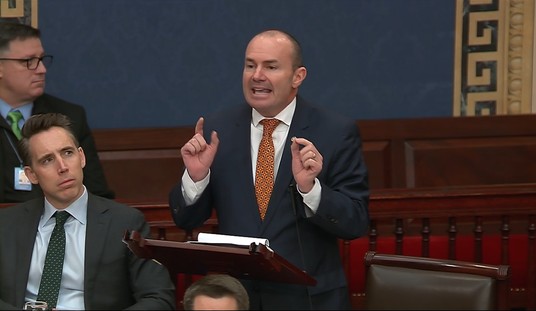There are moments when I am reminded that there are two Americas. Increasingly those Americas are divided by faith and lack of faith — or at least ignorance of faith. Yesterday was one of those days when a friend emailed me this tweet by Brian Beutler of the left-wing trolling site Salon (though soon to be at the credible left-wing site The New Republic).
Beutler asked, in his tweet, “For what practical reasons might a corporation adopt a religious identity other than to burden employees, customers, competitors etc?” He followed it up later by stating, “Getting lots of derp … but nobody arguing that religious entrepreneurs were harmed all the years they lacked this right.”
Beutler, in two tweets, exposes blinding ignorance, but is a voice respected by the left and who helps shape the opinions of others. On the second, no one is arguing religious entrepreneurs were harmed “all the years they lacked” the right to operate as religious for the very reason that up until now they’ve been left alone.
It is only now, but with compulsion to bake cakes for gay weddings and provide funding to subsidize abortions, etc. that we are having this fight. Christians assumed they had the right, the state left them alone, and everyone went about their business.
Secondly, Beutler, like some of his former colleagues at the leftwing Talking Points Memo, has seemingly failed to grasp that the issue at stake in the Hobby Lobby case is not about the First Amendment per se, but about the Religious Freedom Restoration Act. The question is whether it applies to corporations as well as individuals. Undoubtedly, a corporation with a First Amendment right to speech has one related to free exercise of religion. The justices yesterday seemed overwhelming predisposed to that.
More troubling, however, Beutler cannot understand why any individuals would set up a corporation to be run faithful to their religion except to burden “employees, customers, competitors, etc.” This speaks more to Beutler’s hostility toward sincere faith than anything else. His supposition going in to the argument is that “the only practical reason” is to burden others. Again, he is a voice on the left who helps others form their own opinions.
In fact, practicing evangelical Protestant Christians believe in a “Doctrine of Vocation.” In his work God at Work, Gene Edward Veith, Jr., puts it this way, “”The priesthood of all believers” did not make everyone into church workers; rather, it turned every kind of work into a sacred calling.” Further,
The purpose of vocation is to love and serve one’s neighbor. This is the test, the criterion, and the guide for how to live out each and every vocation anyone can be called to: How does my calling serve my neighbor? Who are my neighbors in my particular vocation, and how can I serve them with the love of God?
As Gustaf Wingren stated it in a different way, “God does not need our good works, but our neighbor does.” God compels us to glorify Him, and we are to do that even in our work. Our work is as a missionary and witness for him. Some do it better than others. None do it perfectly. We are all sinners. We all stumble. But we are to glorify God through our vocation nonetheless.
Not even thirty years ago this idea of Christian vocation would not be controversial, nor would it be a foreign concept. But now, as the nation drifts further and further from the church, the old is becoming new again. I can assure Brian Beutler that Christians do not wish to operate their businesses as a burden to others, but as a blessing. Hobby Lobby is a great example of that. The corporation pays its workers well above minimum wage, it closes earlier than its competitors each day, it closes on Sunday, and it gives solid benefits — medical, dental, and retirement.
It also does some things oddly. It does not use barcode scanners, but price stickers on each items. The Greene family believes that, while it is more inefficient superficially, it requires its employees to be more familiar with every item in the store and, thus, better able to help people in need of items in the store.
All these things are informed by their faith. In the last few years people have wanted to be defined by who they sleep with, what sort of clothes they wear, what music they listen to, and who they vote for. Christians have, for two thousand years, been struggling to be defined by the God they worship. The S corporation is just another vehicle by which they seek to glorify God.
Dr. Martin Luther King, Jr. embraced the Doctrine of Vocation in his ministry. In his “Street Sweeper” speech that, to me, remains under rated, Dr. King said
What I’m saying to you this morning, my friends, even if it falls your lot to be a street sweeper, go on out and sweep streets like Michelangelo painted pictures; sweep streets like Handel and Beethoven composed music; sweep streets like Shakespeare wrote poetry; (Go ahead) sweep streets so well that all the host of heaven and earth will have to pause and say, “Here lived a great street sweeper who swept his job well.” …
Now the breadth of life is the outward concern for the welfare of others, as I said. (Yeah) And a man has not begun to live until he can rise above the narrow confines of his own individual concerns to the broader concerns of all humanity.
You may think they or I or anyone else do a poor job of it. We may. But just because one falls short does not mean they shouldn’t be allowed to continue to strive for a goal. Likewise, just because you disagree should not mean the government should be able to force your worldview on those who disagree.













Join the conversation as a VIP Member